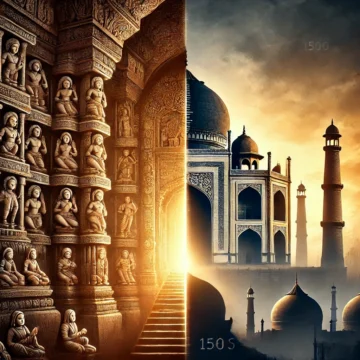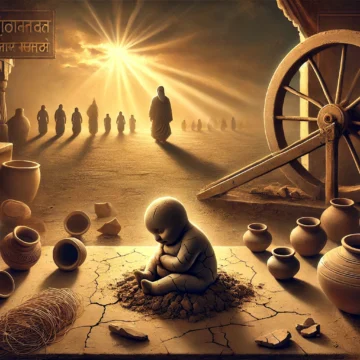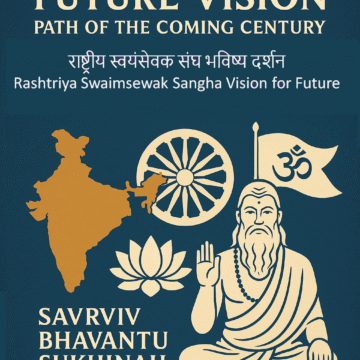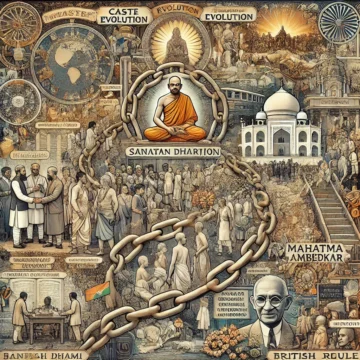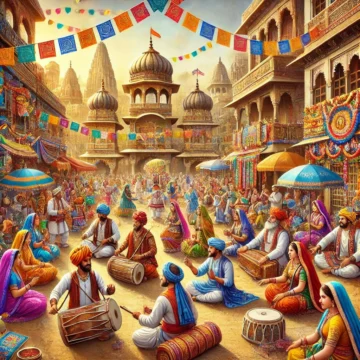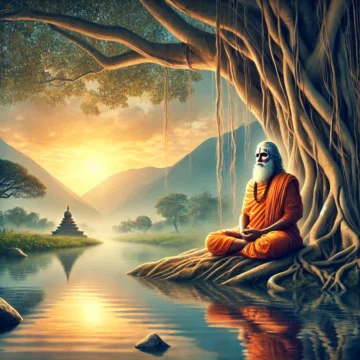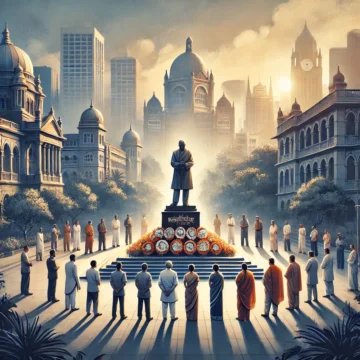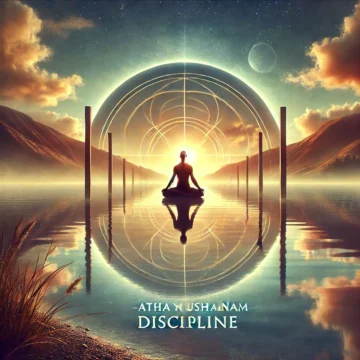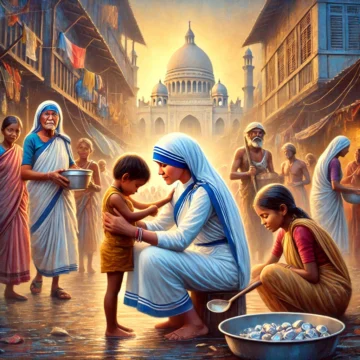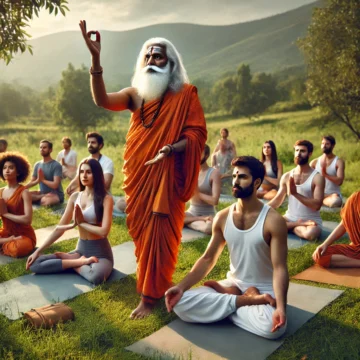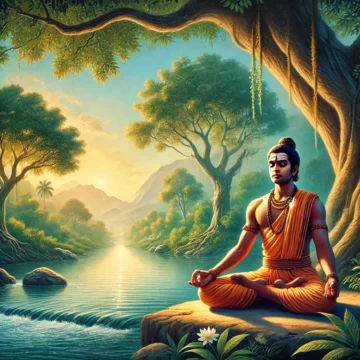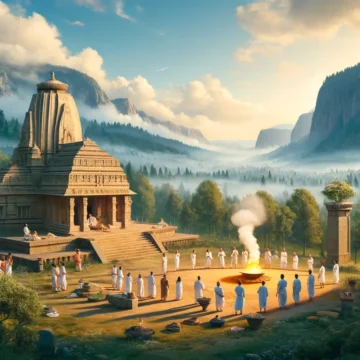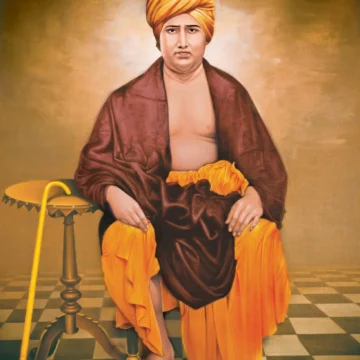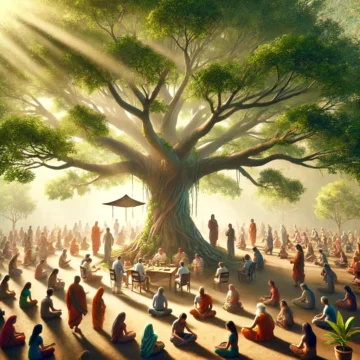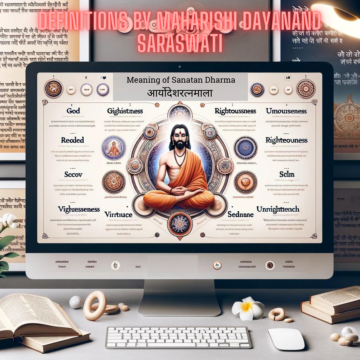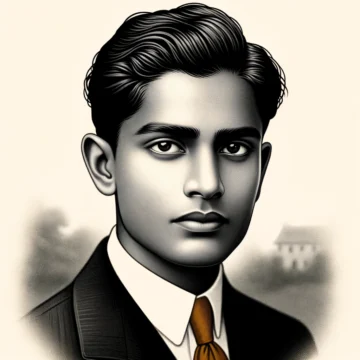This analysis examines Political Islam versus Sanatan Dharma through Mughal-era governance (1526–1800), testing claims of tolerance against historical evidence. By comparing Mughal rule over Hindu majorities with Hindu kingdoms governing Muslim minorities, the study reveals a persistent safety asymmetry rooted in doctrinal systems rather than individual rulers.
Tag: Sanatan Dharma
Manufacturing Defect: When Humans Stopped Making Humans
Modern society celebrates intelligence but ignores humility and discipline—creating incomplete humans. This blog exposes the “manufacturing defect” in parenting and education where children are treated like finished pots before being fired in life’s furnace. Drawing from Hindu wisdom—tapa, danda, and the guru’s authority—it calls for restoring the lost art of manufacturing strong, responsible, compassionate human beings.
Future Vision: Path of the Coming Century
The RSS Centenary Sankalp Patra outlines a Future Vision for the next century, balancing tradition and modernity. From institutional growth and social transformation to global leadership, diaspora roles, AI ethics, education, Ayurveda, and cultural revival, the roadmap emphasizes dharma-based life, harmony, and world welfare. It envisions India as a moral, cultural, and spiritual guide.
Sanatan Dharma and Caste Evolution: Navigating the Pros and Cons
Explore the intricate layers of caste evolution within Sanatan Dharma through historical periods like the Mughal era and British colonial rule. Witness how figures like Mahatma Gandhi and B.R. Ambedkar shaped the modern perceptions and roles within the caste system, and delve into the ongoing debates over nepotism and caste-based privileges.
Hinduism: Exploring Its Impact on Culture
Explore how Hinduism, one of the oldest and most complex religions, profoundly shapes not just spiritual but also cultural and economic facets of societies. This blog delves into Hinduism's influence from colorful festivals to its sway over economic behaviors, showcasing a life system deeply woven into daily life.
Sanatan Dharma: A Philosophy Beyond Theism and Atheism
Explore the rich tapestry of Sanatan Dharma, a philosophy that transcends traditional religious boundaries, integrating atheistic and theistic views alike. This blog delves into its philosophical depth, examining how concepts like karma and dharma foster a unique ethical framework that resonates with seekers of truth across different cultures and times.
Sanatan Dharma and Caste Divide And Ramabai killings
In exploring the Ramabai killings within the context of "Sanatan Dharma and Caste Divide," we confront the ethical dilemmas posed by the intersection of ancient dharmic teachings and modern societal structures, shedding light on the need for redefining traditional values to bridge deep-rooted social divides.
Patanjali Yoga Sutras: Understanding “Atha Yoganushasanam”
Explore the foundational sutra "Atha Yoganushasanam" from Patanjali's Yoga Sutras, which marks the commencement of a profound journey in Ashtanga Yoga. This sutra signifies readiness and a disciplined approach to learning, setting the stage for deep spiritual and practical insights into yoga's transformative power.
Mother Teresa’s Legacy Analyzed Through Sister Nirmala’s Life
Mother Teresa's legacy, marked by her selfless service and the founding of the Missionaries of Charity in 1950, was upheld by her successor, Sister Nirmala Joshi. Adhering to Sanatan Dharma principles, their commitment to humanitarian efforts remains inspirational. Despite facing ethical dilemmas and controversies, their focus on compassion, justice, and societal well-being exemplified how religious teachings can guide ethical living and social justice.
Patanjali and His Ashtanga Yoga
Delve into the heart of Ashtanga Yoga through Patanjali’s Yoga Sutras. Explore how this ancient wisdom, penned between 200 BCE and 400 CE, offers a pathway to spiritual liberation and deepens our understanding of the mind-body connection within the framework of Sanatan Dharma.
Yoga Day and Ashtanga Yoga In Hindu Philosophy
Sanatan Dharma, integrative and holistic, guides adherents through life stages—from householder to renunciate—toward the ultimate goal of Moksha, or divine union. This blog delves into the profound practices of Ashtanga Yoga within Sanatan Dharma, exploring its rich philosophies from the Yoga Sutras to Vedanta, each pathway leading to spiritual liberation.
Hindu Philosophy: Key Concepts in Sanatan Dharma
Continuing our series on Sanatan Dharma, we explore the final definitions by Maharishi Dayanand Saraswati in "आर्योदेशरत्नमाला." These encompass the soul's nature, universal benefit, renunciation of theft and adultery, and distinctions between inert and conscious entities. Understanding these concepts is key to appreciating Hindu philosophy's depth and inclusivity. Dayanand's insights highlight Sanatan Dharma's dynamic nature, fostering enlightenment in modern life.
Dharma Meaning: Key Concepts in Hindu Philosophy
Continuing our weekly thematic exploration at HinduInfoPedia.org, this post, scheduled for May 29, 2024, delves deeper into the meaning of dharma within Sanatan Dharma. Building on last week’s discussion by Maharishi Dayanand Saraswati, founder of Arya Samaj, we explore the next 36 definitions from his work "आर्योदेशरत्नमाला," highlighting Hindu philosophy's inclusivity and practical applications in daily life.
Sanatana Dharma: Secular and Inclusive Values of Hindu Philosophy
Explore the profound teachings of Sanatana Dharma, which emphasize inclusivity and collective well-being through ancient scriptures. This blog delves into how these principles of Hindu philosophy resonate with modern societal challenges, fostering peace and unity across diverse communities under the symbolic shelter of an ancient, all-encompassing tree.
Meaning of Sanatan Dharma: Learn Concepts in Hindu Philosophy
Continuing our weekly thematic exploration at HinduInfoPedia.org, this blog post, scheduled for May 22, 2024, delves into the meaning of Sanatan Dharma, as elucidated by Maharishi Dayanand Saraswati, a revered scholar and founder of the Arya Samaj. His seminal work, "आर्योदेशरत्नमाला," offers 100 essential definitions that form the core of Vedic knowledge, shaping our understanding of Hindu philosophy and its practical applications in daily life.
Sanatan Dharma, unlike more doctrinally rigid religions like Christianity or Islam, presents a unique framework that accommodates diverse beliefs, including atheism. This flexibility allows for various systems of salvation, reflecting the inclusivity fundamental to Hindu thought. Followers who engage in idol worship and those who do not are equally recognized as Hindus.
Arya Samaj, initiated by Maharishi Dayanand, advocates for a form of worship that eschews idolatry, aligning with the tenets of Vedic scripture. This blog series explores these nuances, with special commentary by the author on definitions that particularly reflect the Arya Samaj’s perspectives. Through this exploration, we aim to deepen the reader's appreciation for the broad and inclusive nature of Hinduism and the specific interpretations of Maharishi Dayanand Saraswati.
Sanatan Dharma and the Role of Jiddu Krishnamurti
Explore the profound connection between Jiddu Krishnamurti, a 20th-century spiritual icon, and Sanatan Dharma. This blog delves into how Krishnamurti's teachings, deeply rooted in ancient Hindu philosophy, inspire a journey towards self-realization and challenge traditional spiritual dogmas, emphasizing personal inquiry over religious orthodoxy


